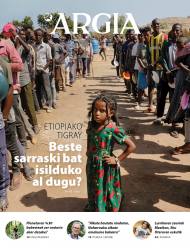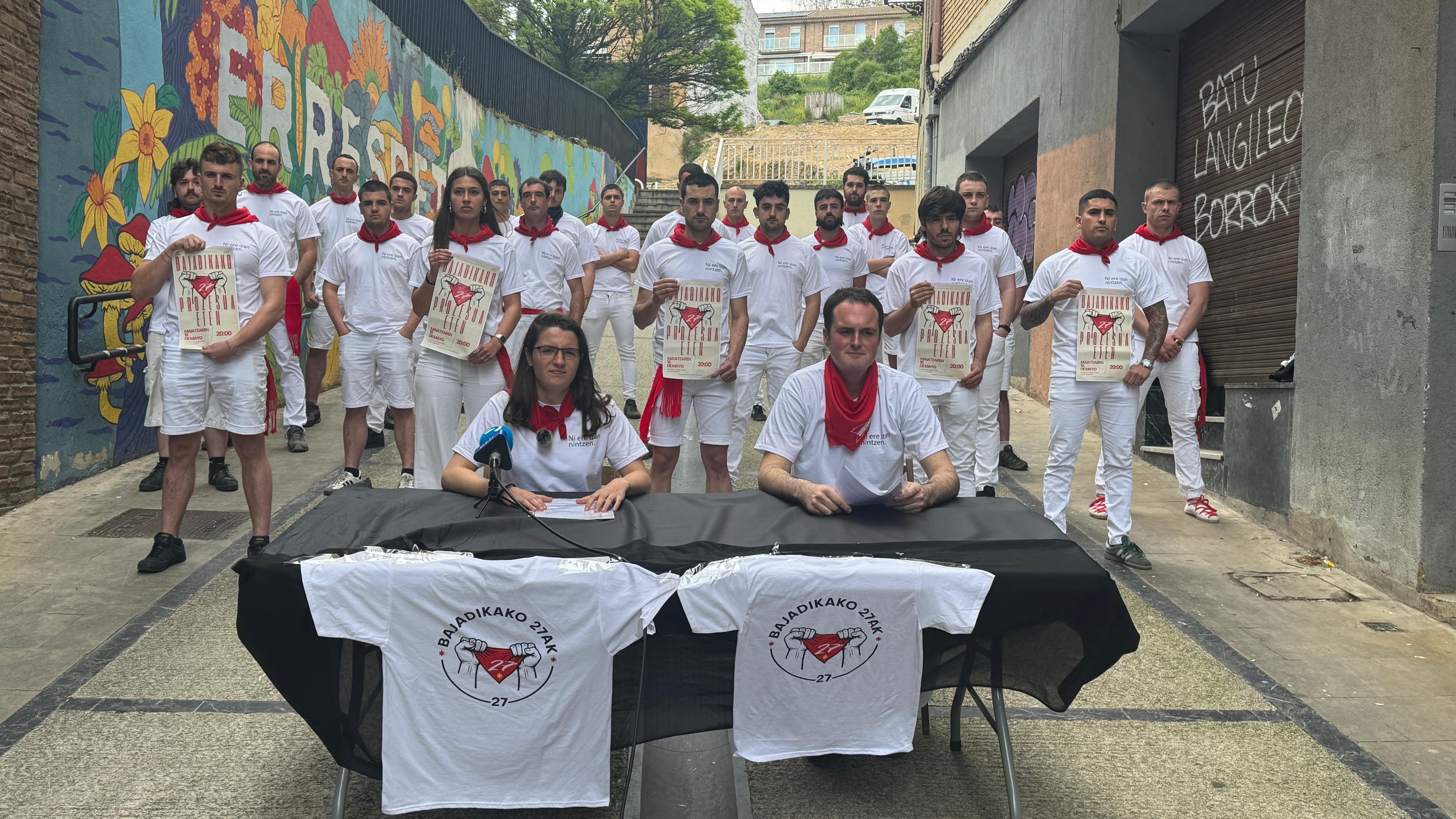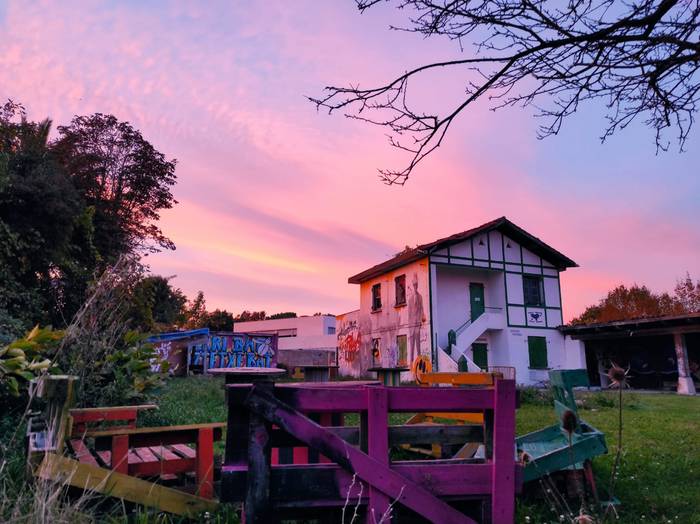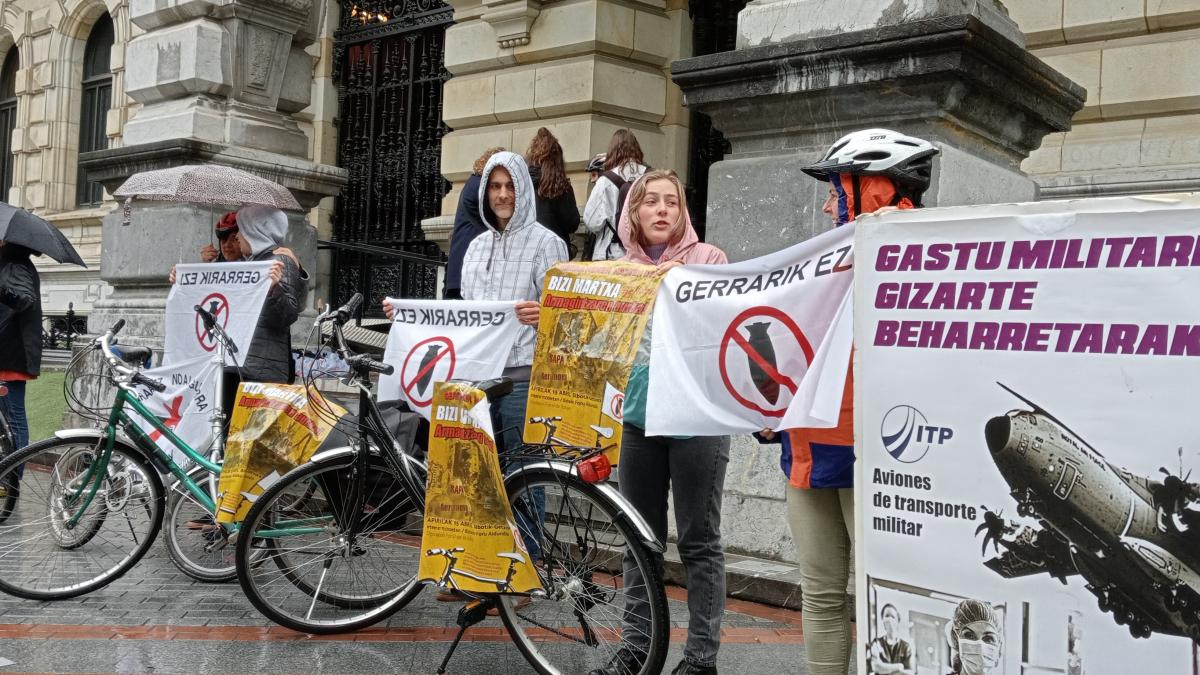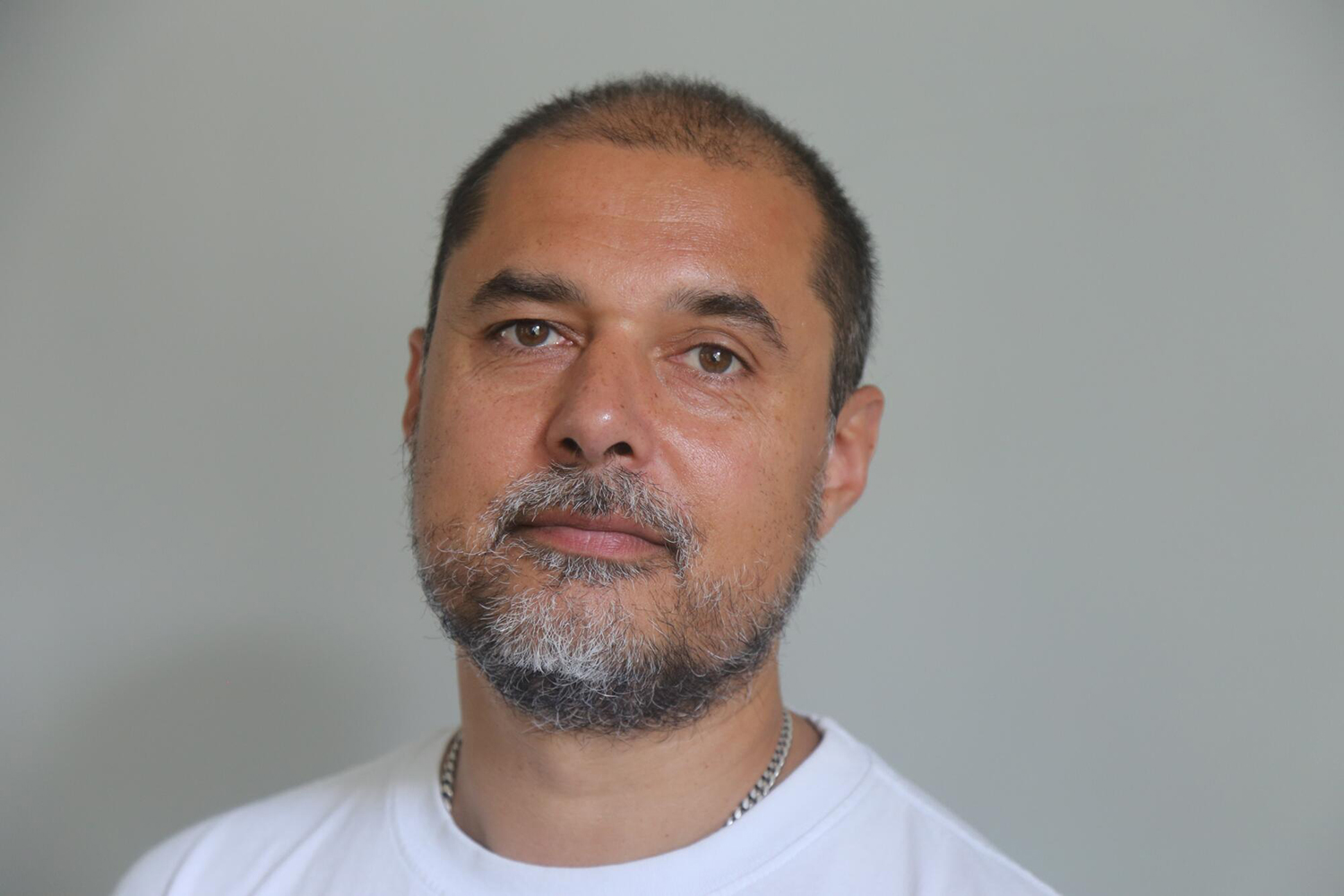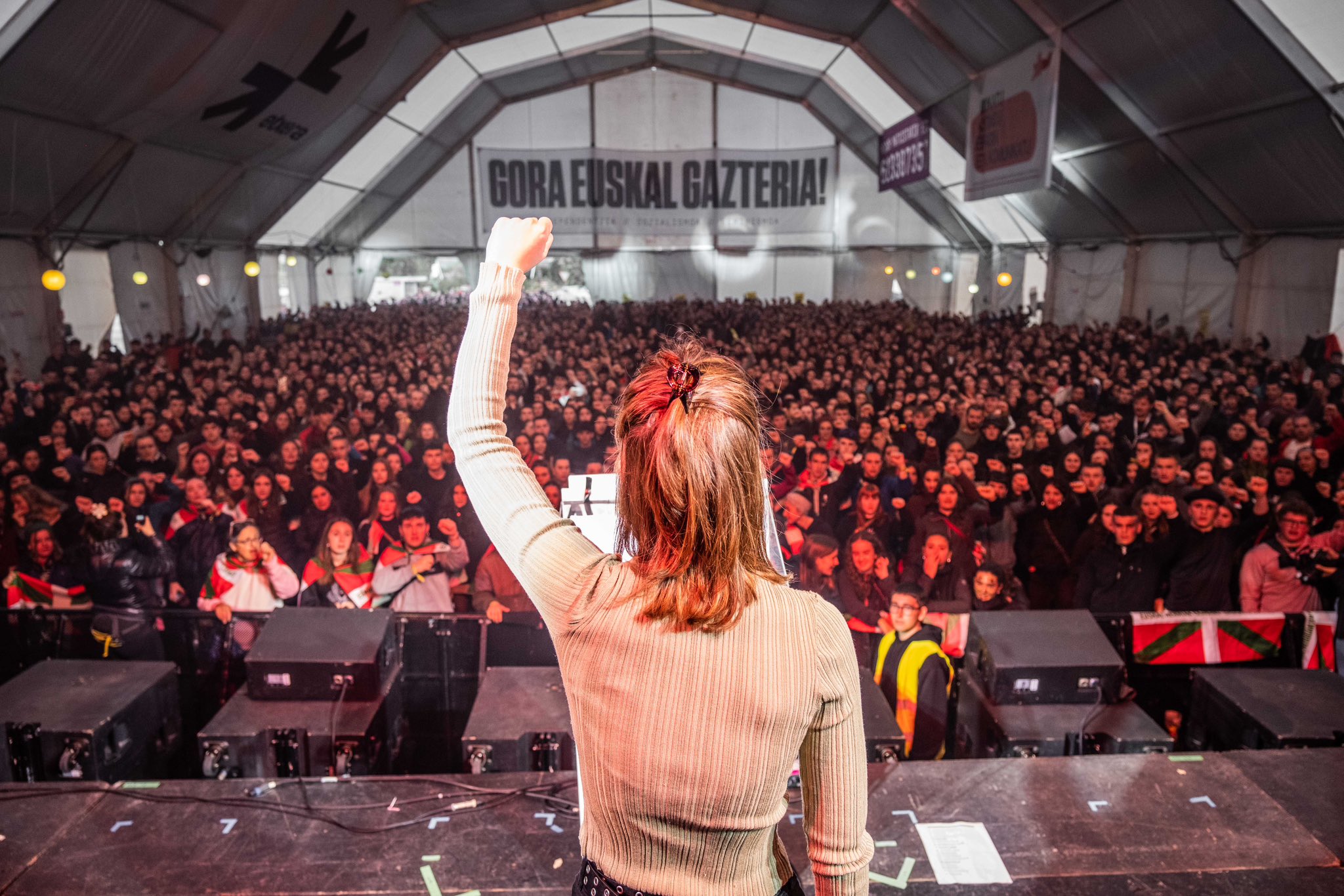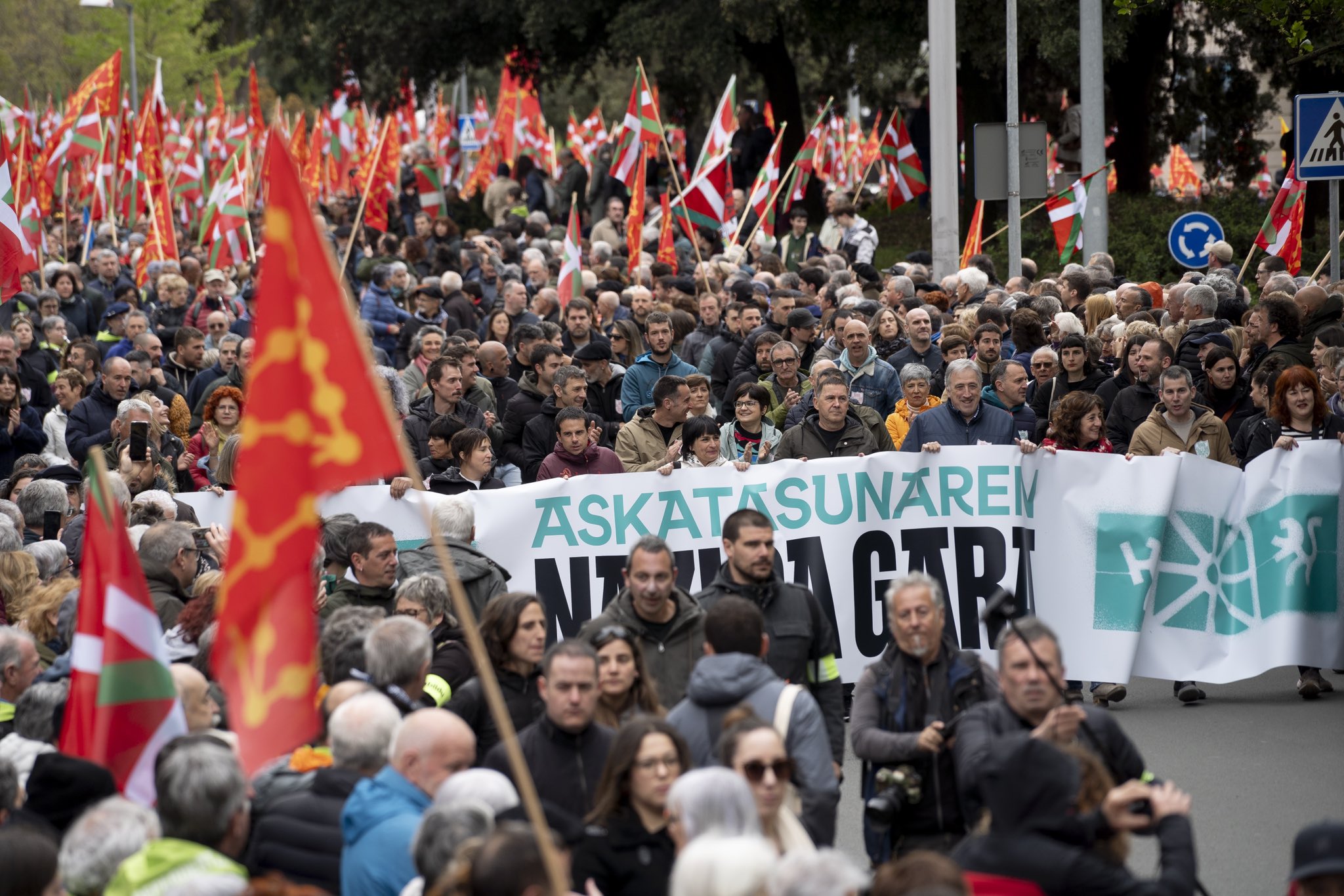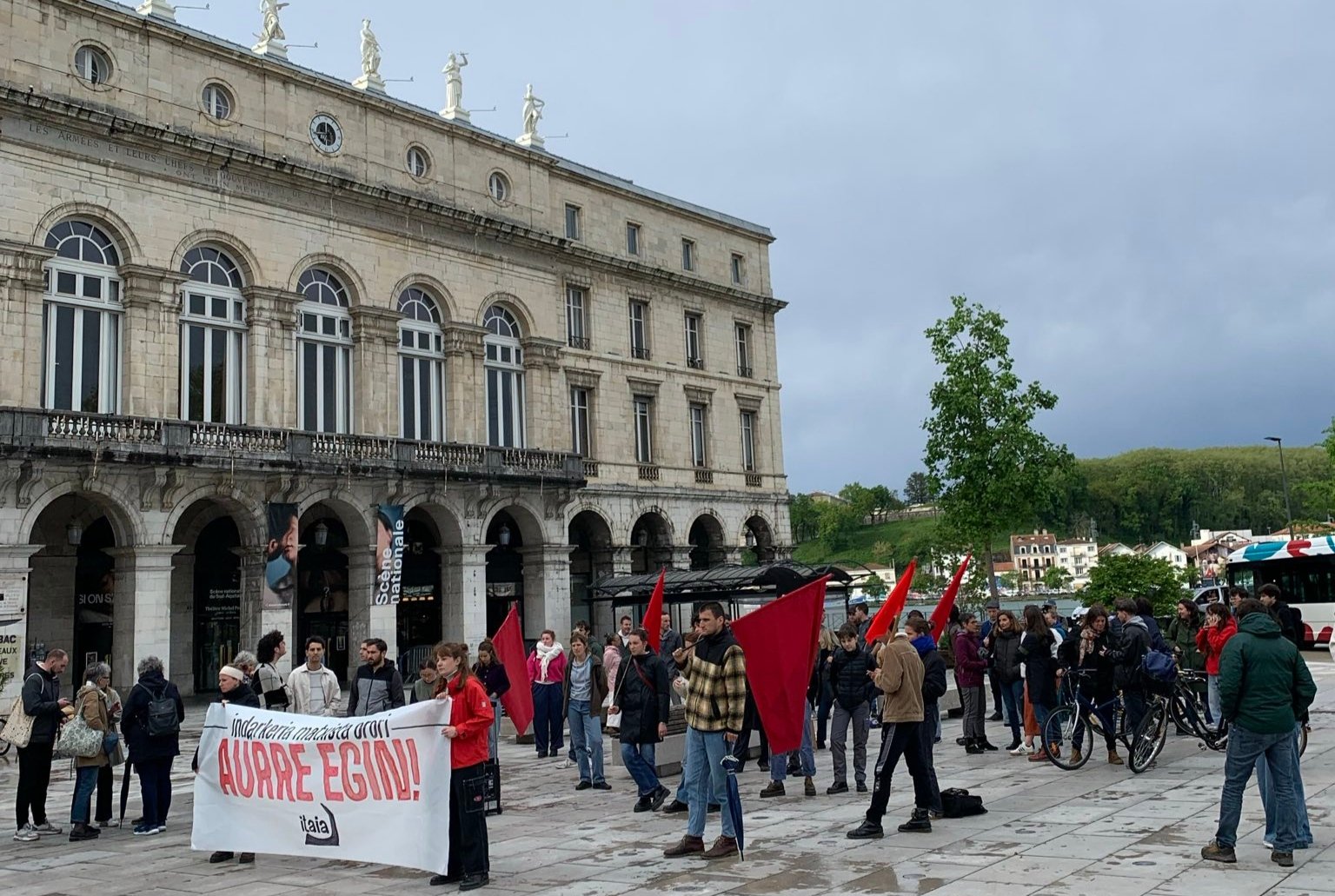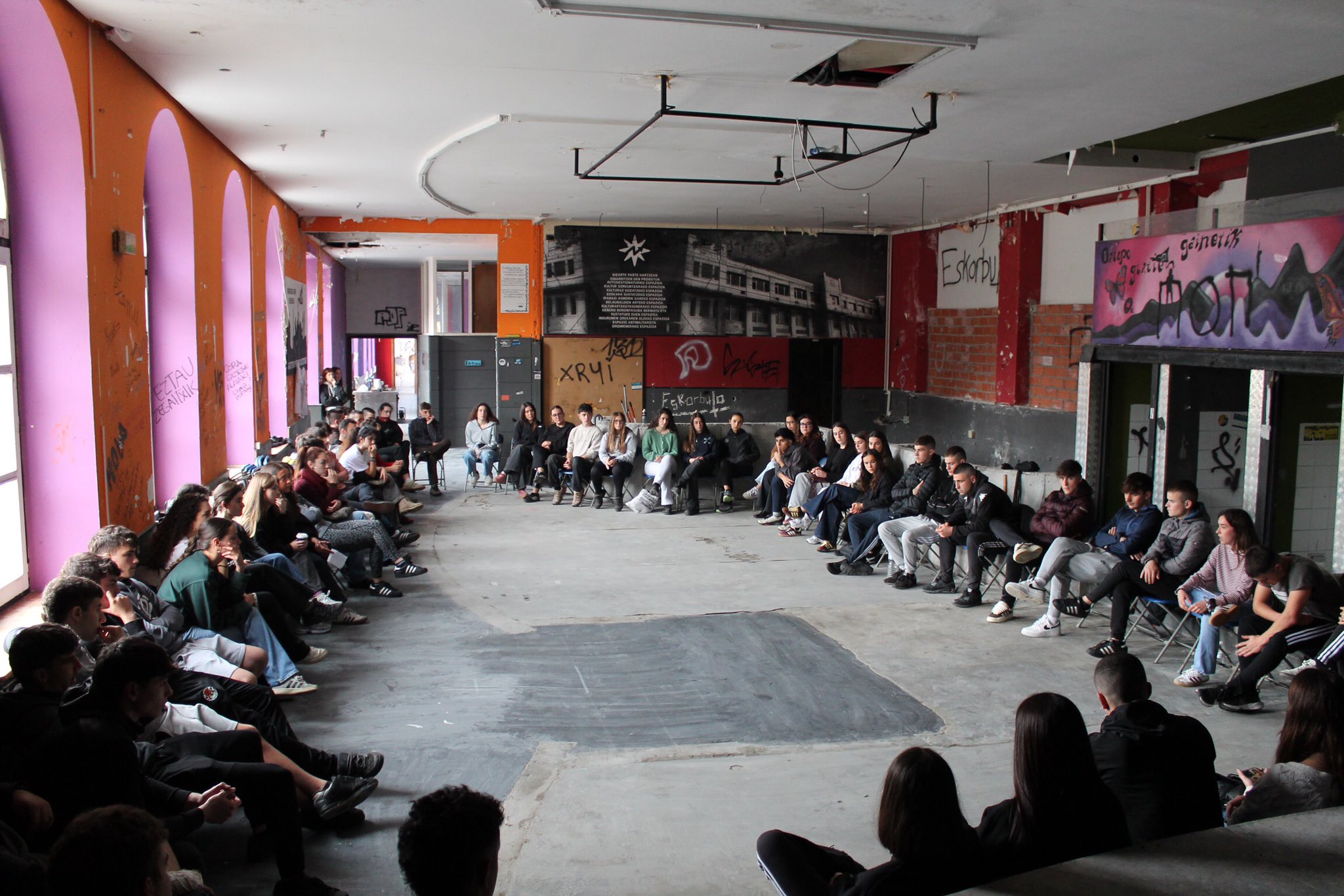"Political formation is back in 'fashion', but each one is yours."
- At the end of July, the Oinharri School organized an eight-day boarding school for people from popular movements in the free district of Errekaleor in Vitoria-Gasteiz. The usual training model is worsened and the participants are agitated. We talked to Unai Vázquez and Gorka Zozaia.
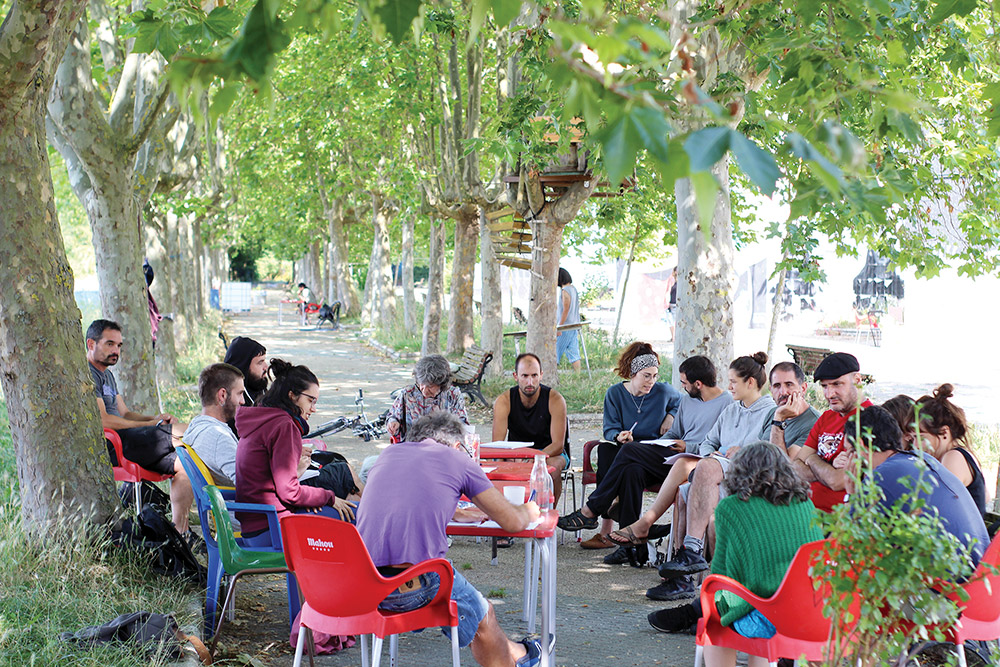
We'll start with the starting point of the school. The Brazilian school MST Florestan Fernandes of the Landless Movement has a lot to do, right?
Unai Vázquez: That school is a referent, yes, but not the only one. It is true that some of the initiates with the Oinharri School project have gone through there, and have fallen in love with the method, so it has had a great influence. Most of us have already had a close relationship with training: in popular movements, in other schools around the world or at the Public University of the Basque Country, for example.
However, Florestane’s experience was impressive. For two months I participated in an international course aimed at popular movements in Latin America and I had many sensations, learning and contradictions. It gives you a feeling similar to going as a child to the colonies.
How many people are participating in the project?
U. Vázquez: Some 20, of course, at different levels of involvement, some in depth, a priority militancy in Oinharri and others combined with other militancies. Without the ability to be liberated, but with great enthusiasm, with the feeling of building something different, necessary and complementary.
You've done several presentations of the school, how did they go?
U. Vázquez: In general, the project is considered interesting, but I think it is missing: everyone looks at their navel and we say it. It is normal, we analyze everything from what we know, even the proposals that come from outside. Our objective is twofold, on the one hand, to provide minimal political training for all popular movements, and on the other, to promote mutual knowledge among popular movements through coexistence, as our motto “change knowing” says. The agents, although they consider the project interesting, find it difficult to see what we are different from them or from the training tools of other institutions until they take part in the course. Thus, by forming in the method, by experimenting, one realizes one's own project and changes its perspective.
They've done two barnetegis. What valuation are you doing?
U. Vázquez: The first barnetegi, although we invited people from outside, was especially oriented inwards, to know and train the method, to discuss and put into practice what we theorize so much. In Florestan, we also wanted those who didn't go through school to feel in their bodies. The connection we had for the second day, the cohesion in inequality, what wonderful things can be achieved in the collective with the agreed coordination and militant discipline. The purpose of the courses is not to receive “classes”, but collective mutual knowledge, and for this we have four areas of learning: community work, political theoretical practice, cultural creation and organization. One is no more important than the other, all are essential, if one does not work the wheel does not turn, it collides. Through this clash, we teach how to learn, generating contradictions. As this is the main instrument, high intensity helps to increase contradictions.
Gorka Zozaia: "The Oinharri School blends the body and the community, the culture and the organization with the classical contents and offers a new space"
In the second barnetegi, they've opened out.
U. Vázquez: Yes, and that has meant clashes like militancy models (“older/younger”), masculinities, the bourgeois conception of “free” time that we have internalized… Many contradictions have emerged and, by identifying and managing, we have been learning. Of course, we have also been faced with contradictions, and we learn from them.
The course is an experience, it goes through all emotional situations, there is intentionality in all of it. The final sensations, until now, have been very good, it is worthwhile to greet their peers, to stop living in a collective.
Gorka Zozaia: The latter, to which Unai has referred, is very evident, the boarding school creates community. In the world where we're used to acting as individuals, it suddenly breaks. Some immediately, others by the third day, but strong constructions of isolated self-sufficient individuals are broken, driven largely by the intensity of compactness. We take care of each other in the community, we need each other to meet our material and emotional needs, and that need appears in the boarding school.
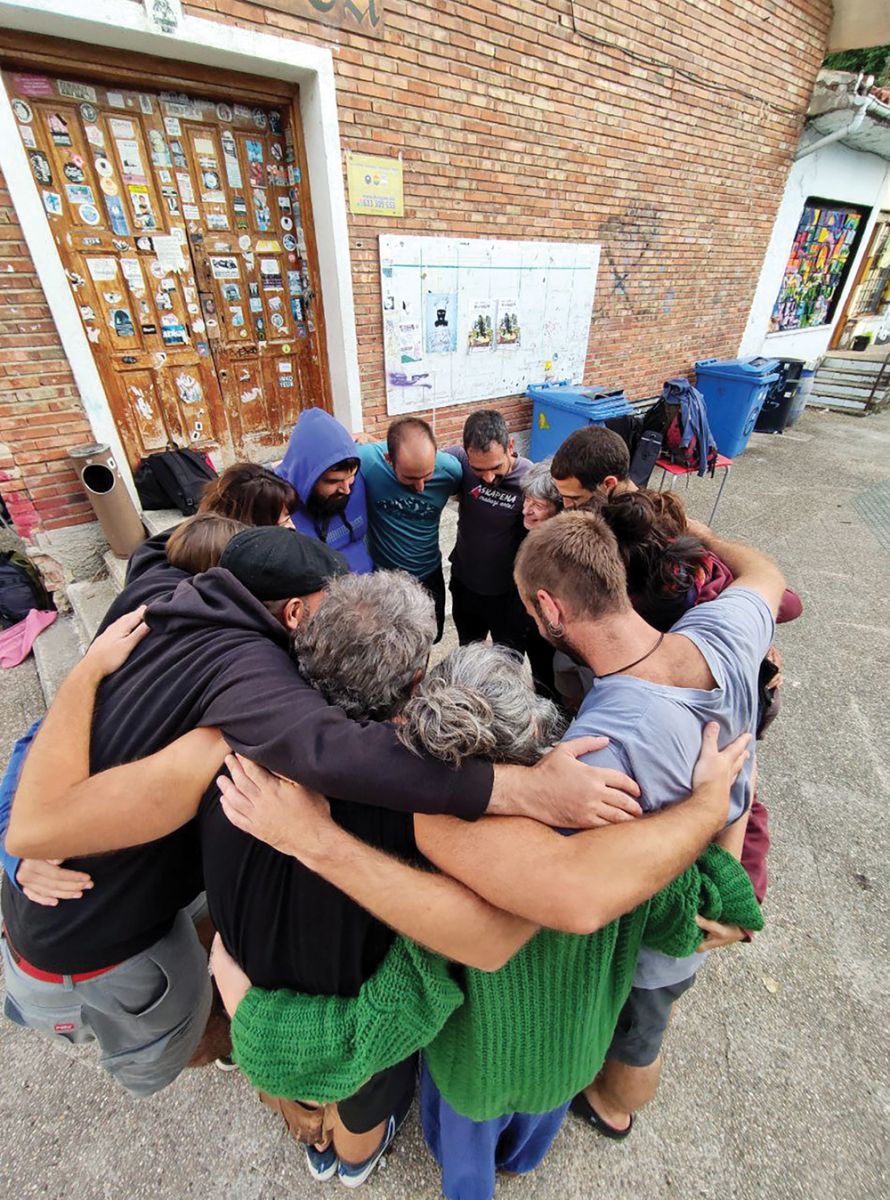
In both experiences this has been very evident, and precisely the rupture of individuality is key to provide a deep and meaningful learning of certain contents that are usually labeled as “formation”. Because it's not common to be prepared to learn, to change ourselves. For example, when we take part in a conference on a subject, we often know in advance what our position will be, what our criticism will be and what our contribution will be in the final speeches. The boarding school breaks the time, opens the possibility of looking at the contents we already know from another place and learning from each other. Therefore, we do not distinguish between “formation” and “coexistence”: all moments of hospitalization have a pedagogical character, are previously thought and have an intentionality.
How do you value the political training situation in the Basque Country?
G. Draw: The map of political formation is rich. There are projects over 40 years old and newborns, or local and national projects. There are those who base the formation on reason and classical contents, even those who integrate the body into the formation, or focus more on the participative dynamics than on the contents. And, of course, there are deeper and more superficial political formations. Pluralism prevails, but in general they are projects that generate political, social and union agents to feed their political activity, without experiences that extend to the militants of different agents.
The Oinharri School takes these experiences into account, drinks them and does not intend to replace them. Alta, wants to feed the map of the political formation of Euskal Herria with the formative experiences that have come from the Global South. Thus, the Oinharri School seeks to confuse the body with the community, culture and organization, with classical contents and offer a new space, bringing together participants from different agents and militancy models, to learn from the contradictions and interactions that occur in coexistence.
In addition, we believe that the learning process must bring about change. It is not a superficial and simple process, it requires effort, and in these times the effort is nothing fashionable, or the militants have no time or desire for additional efforts. For this reason, there is a tendency to streamline political training and adapt it to the usual consumer formats, somehow facilitating its formation at any time. Pills that can be consumed through cell phones during work, meals -- fundamentally. These formats are not capable of causing significant changes in people.
Unai Vázquez: “I have the feeling of being in the era of the ‘Jewish People’s Front’ and the ‘Jewish People’s Front’. Our job is not to build the Unified Front of Judea."
Throwing away the difficulties...
G. Draw: As I said before, it is not easy to “sacrifice” holidays a few days from the understanding of the leisure we have today. It seems that if we don't travel far we don't have a holiday. It's harder when holidays are too short working on precarious jobs. In addition, an important difficulty is the atomization of the agents that has been accentuated in the last decade, as well as the mutual reticence we have; it is difficult to open the doors to learning outside the agent himself (the parish). But those same difficulties are an opportunity to build consensus. Because meeting spaces are scarce and there is a desire. There is also a curiosity to learn about other political formations and to enjoy holidays in another way, more consistent with our discourse on tourism, for example.
U. Vázquez: Political training has long been neglected. Training must be central, continuous and permanent in any popular left-wing movement. The laws of dialectics warn us that everything is constantly changing, we are left without permanent training, we lose the capacity for analysis and, therefore, for change.
Now it seems that political formation is again “fashionable”, but everyone does their own thing and for himself. I have the feeling that we are at the time of the 'Jewish People's Front' and the 'Jewish People's Front'. I'm a little geek and I really like the movie The life of Brian. We do not come to change this, our job is not to build the Unified Front of Judea, but mutual knowledge, the struggle of the other, analysis, knowledge of the experiences, coexistence, always helps to find the way.
Errepikatu nirekin: Sara Millerey. Ez dezagun ahaztu bere izena. Transfeminizidioaren biktima da Millerey: gorrototzaile transmisogino batek torturatu zuen, besoak moztu zizkion eta bizirik bota zuen ibaiertz batera. Bi orduko agoniaren ondoren hil zen.
Errazagoa da J.K... [+]
Many Basque feminists have been disappointed to learn that writer Chimamanda Ngozi Adichie has externalized pregnancy, meaning that a surrogate has fertilized her baby for money.Adichie is the author of the essay We should all be feminists, among others. They have ignored the... [+]









